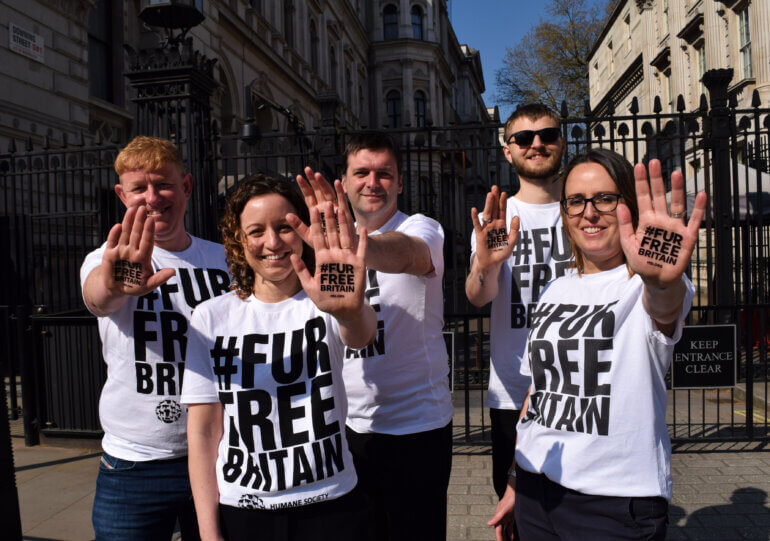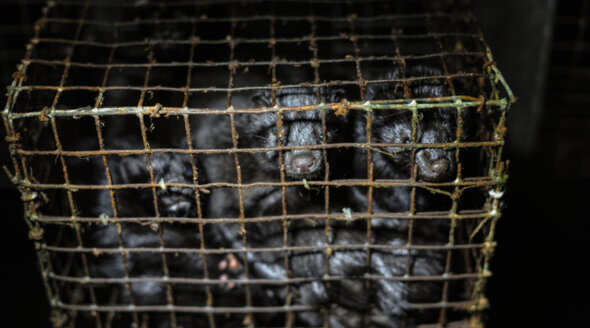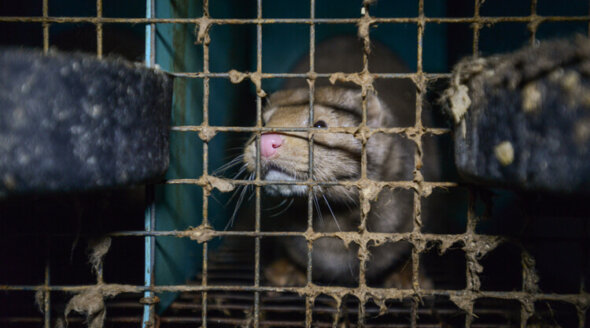1 Million Petition Signatures Have Been Submitted to 10 Downing Street Calling For a #FurFreeBritain
We’ve reached a massive milestone! Over 1 million people have now joined the #FurFreeBritain campaign.
Five of the UK’s largest animal protection organisations – including PETA – gathered at the gates of 10 Downing Street calling for a UK fur sales ban in advance of parliament’s Ten-Minute Rule Bill.
CEOs and directors of PETA, Humane Society International UK, the Royal Society for the Prevention of Cruelty to Animals (RSPCA), Open Cages, and FOUR PAWS UK, along with campaigners wearing fox masks, submitted the 1 million signatures to Prime Minister Boris Johnson along with a letter from Queen guitarist Brian May.
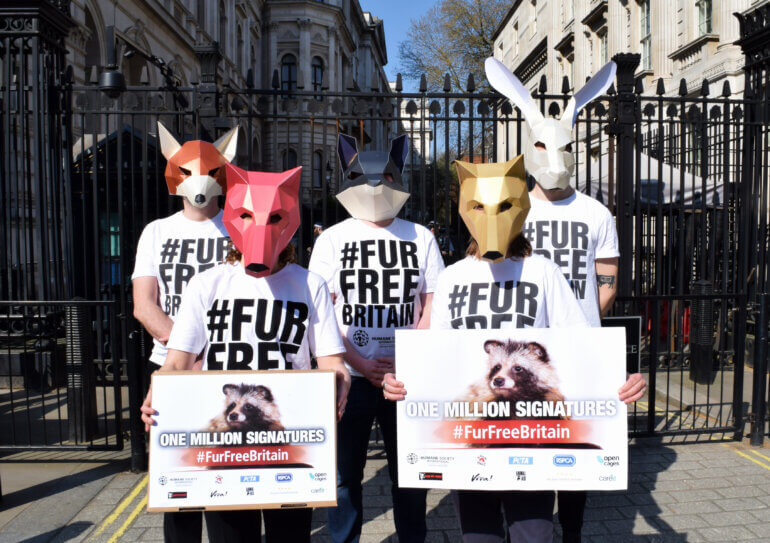
Taking a Stand Together
The letter was co-signed by PETA, Humane Society International UK, FOUR PAWS UK, Open Cages, the RSPCA, Animal Aid, The Jane Goodall Institute, Viva!, and Brian May’s Save Me Trust. The petition was also supported by petition platforms Care2 and Change.org.
Together, the coalition of these groups, with the support of Brain May and Chris Packham – who joined the petition hand-in virtually – and the astonishing 1 million signatories have taken an impressive stand against the barbaric fur industry.
On behalf of minks, raccoons, and foxes, thank you to everyone who signed our petition!
Why Are We Calling For a #FurFreeBritain?
Over 20 years ago, the UK acknowledged the undeniable cruelty to animals that takes place on fur farms and made the right decision to ban them.
However, allowing the import and sale of fur from overseas is simply a double standard. By allowing the trade in fur – regardless of where it comes from – the UK is still supporting this barbaric industry.
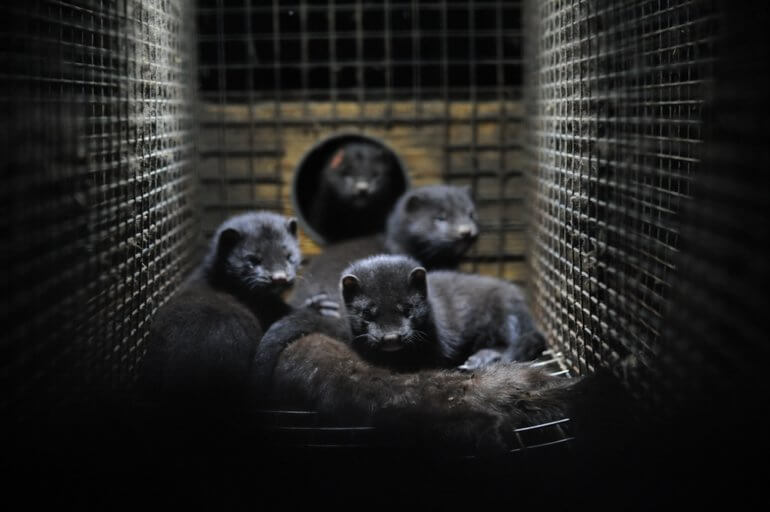
The vast majority of the British public rejects animal fur. Ninety-five per cent of British people refuse to wear it.
The message is clear: fur is not wanted in the UK.
The government must listen to the will of the people and bring forward this much-needed legislation.
What’s Wrong With Fur?
Before their fur is imported and sold, foxes, rabbits, minks, and other animals spend their entire lives confined to filthy cages.
Unable to engage in natural behaviour, on fur farms, sensitive animals often go mad from confinement. As a result, some mutilate themselves, chewing on their own legs or tails. At the end of their short lives, they are killed in gruesome ways. Fur farmers poison, gas, electrocute, or drown them or even skin them alive.
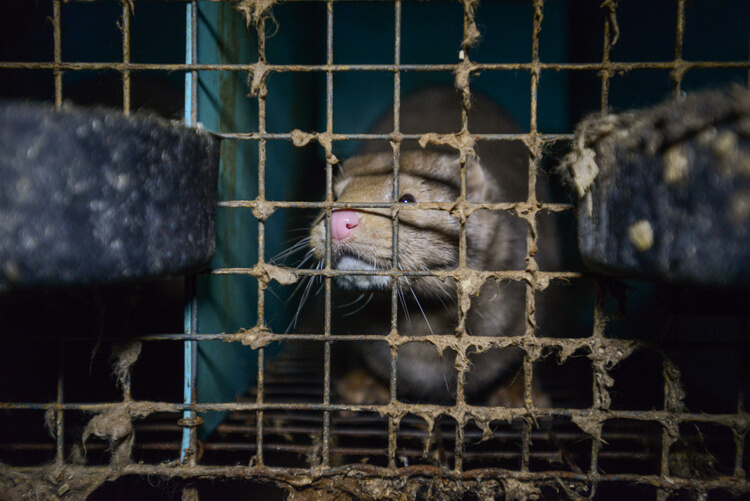
Risk to Public Health
Fur farms also pose a serious public health risk. When animals are confined next to each other in wire cages, it’s easy for diseases to spread through the exchange of urine, excrement, pus, and blood.
As minks are particularly susceptible to respiratory illnesses, mink farms around the world are becoming dangerous breeding grounds for diseases and have been identified as COVID-19 hotspots.
A mutated version of the virus that originated in minks has now been identified in several countries and poses a risk to the effectiveness of vaccines. Other species reared on fur farms – such as foxes and raccoon dogs – are also known to be able to become infected with SARS-CoV–related viruses.
What’s Next?
Keep up to date with our campaign and be the first to hear of any progress by signing up to our e-news.
If you haven’t already, you can still speak out and add your name to our petition calling for a #FurFreeBritain:
If you’ve already signed our petition, here’s how you can take further action against fur:

